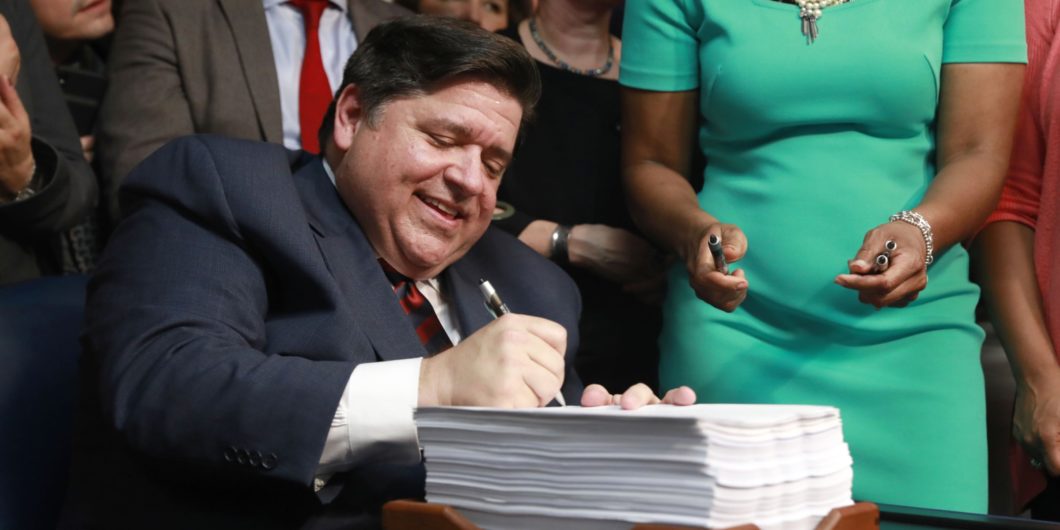The mistake that the Supreme Court makes is to presume that the answer to this specific question must be found in the Constitution.
State Debt and the Eleventh Amendment
The Eleventh Amendment is unique in American law because, as Professor Martha Field quipped, it “is universally taken not to mean what it says.” This oddity can be traced to three major fights, and two debt crises, in constitutional history: The creation of the amendment during the Revolutionary War debt crisis, the expansion of a broader “judge-made” Eleventh Amendment in the Reconstruction debt crisis, and a reframing during Chief Justice Rehnquist’s federalism revolution. With rapid COVID-related spending exacerbating state finances that in many places never recovered from the Great Recession, we may be in for a fourth major doctrinal development. Maybe this one will pay attention to constitutional text.
The Eleventh Amendment is short and fairly clear: “The Judicial power of the United States shall not be construed to extend to any suit in law or equity, commenced or prosecuted against one of the United States by Citizens of another State, or by Citizens or Subjects of any Foreign State.” A state cannot be sued by citizens of other states or of other countries; this is state sovereign immunity. But its interpretation is much broader.
The original Constitution did not grant states any immunity and the Court said as much in Chisholm v. Georgia (1793), allowing out-of-state debt collectors to sue Georgia for Revolutionary War bonds. The Eleventh Amendment soon followed, granting states immunity in cases against foreigners or citizens of other states. Effectively, the amendment said that the decision in Chisholm was wrong without much more. But in Hans v. Louisiana (1890), the Court expanded this rule to include suits between a state and its own citizens. That case arose out of the debt crisis faced by southern states during Reconstruction. This ruling was tempered by other rulings which allowed state citizens to sue municipalities and to prevent state officers from violating the constitution in the future.
The last major changes did not come from a state debt crisis. Instead, state sovereign immunity was expanded as part of the so-called federalism revolution—really a failed insurrection. This was an effort during the last decade of the 20th century and first decade of the 21st to return much of the power that had shifted from the states to the federal government. Still, the Supreme Court embraced an understanding of this particular provision—which did increase state power, although not at the federal government’s expense—that went far beyond its text. And individual justices showed signs of wanting to expand the immunity further. The best short summary of immunity following this era is that states are immune from suit, but if Congress is plausibly legislating to enforce the Fourteenth Amendment, it can abrogate a state’s immunity.
The best case would be for originalists and textualists on the Court to convince their fellow justices to bring the Eleventh Amendment back to its words.
As Duke Law professor Ernest Young has noted, the state debt crises looming in the wake of the Great Recession, which laid bare the profligate tendencies of states like Connecticut, Illinois, New Jersey, and Rhode Island, showed the potential to open the state sovereign immunity question back up. However, COVID-19 has stormed in and caused an explosion in local, state, and federal spending that could mimic the existential debt crises that followed the Revolutionary and Civil Wars. States are bidding with each other for medical equipment and handling record unemployment payments. They’re also losing sales tax revenue, while localities are contractually obligated to run transportation services that are not seeing use.
In the next decade, we should watch for creditors knocking on state doors. Although Hans says that these creditors cannot collect from delinquent states in court, the volume of debt will no doubt convince some institutions that it is worth the legal fees of trying to get a case overruled. And the composition of the Court has changed since the last round of state sovereign immunity cases.
The best case would be for originalists and textualists on the Court to convince their fellow justices to bring the Eleventh Amendment back to its words. This is necessary not only because we should not have judicially inserted extraconstitutional amendments, but because in a rule-of-law society, the state should be accountable for its misdeeds. And when the sky doesn’t fall, the justices may be more willing to abrogate other odious immunity doctrines like qualified immunity, which allows state and federal officers off the hook for constitutional violations.
We should watch this new wave of cases carefully. It is just as likely that new sovereign immunity challenges could spur the Court’s federalist-minded justices to make common cause with those who feel sorry for the states’ budget woes and expand immunity to cover state officers and municipalities that receive their own authority from the states.
Crisis brings opportunity and change. Hopefully, this opportunity shifts power away from government and into the arms of citizens.


